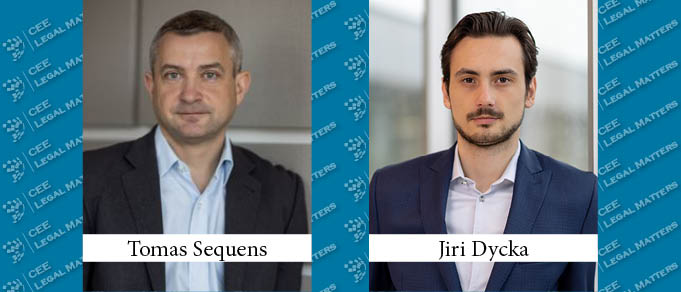Although the intensity of solar radiation in the Czech Republic is not particularly significant, the state has extensively subsidized the construction of solar power plants in order to meet its commitments to the European Union regarding the financing of renewable energy sources. In 2009 and 2010, the Czech Republic experienced a solar boom when solar power plants were built on a large scale. Financial support for solar power plants, however, has undergone radical changes since then.
Solar Power Plant Operators Sue the Czech Republic
In this context, there has been a recent proliferation of solar power plant operators seeking compensation from the Czech state for alleged damages on the basis that Czech authorities incorrectly transposed into domestic law Directive 2012/19/EU, on waste electrical and electronic equipment (WEEE Directive). The number of applications to initiate proceedings in similar cases in the Czech Republic has grown to 230, with alleged damages amounting to CZK 2 billion.
The solar power plant operators claim that the Czech state caused them harm when, under Czech law at the time, they were liable for the waste management costs associated with solar panels. Since that is inconsistent with the WEEE Directive, which placed the financial burden on panel manufacturers, not on the operators, the argument was that it is the manufacturers who should bear the waste management costs of solar panels placed on the market after August 13, 2005.
While the common practice of the lower courts was to rule in favor of the operators, the Supreme Court of the Czech Republic referred the matter to the European Court of Justice (ECJ) for a preliminary ruling that reversed this practice.
Findings of the ECJ
The ECJ first concluded that it is possible to classify solar panels as electrical and electronic equipment within the meaning of the WEEE Directive and, thus, the obligation to finance the waste management costs of solar panels placed on the market after August 13, 2005, should be borne by the manufacturers of the panels.
However, according to the EU legislation which existed before the WEEE Directive was adopted, member states had had the choice of requiring the waste management costs to be borne either by the current or previous waste holders, or by the manufacturer or distributor of the panels. When a member state chose to burden subjects other than panel manufacturers – i.e., differently from the WEEE Directive that came afterward – the WEEE Directive affected situations that had been established before it entered into force.
It was concluded that the new rule thus breaches the principle of non-retroactivity of legal acts as it changed a previously established situation where it altered (subsequently and unforeseeably) the allocation of costs. Manufacturers of solar panels were legitimately able to rely on the allocation of those costs that was provided for in the legislation existing at the time, and thus the new rule denies those manufacturers any real possibility of taking appropriate steps following the legislation’s entry into force. In other words, manufacturers of solar panels were unable to foresee, when designing the solar panels, that they would subsequently be required to bear the waste management costs of such solar panels.
Since the WEEE Directive infringes the principle of legal certainty, the ECJ declared the WEEE Directive invalid to the extent it retroactively imposes on manufacturers the obligation to finance the waste management costs relating to the management of solar panels placed on the market between August 13, 2005, and August 13, 2012.
The Supreme Court of the Czech Republic has already ruled on the basis of the ECJ’s judgment, by reversing the lower courts’ judgment in favor of the Czech state. According to the press release, it will take a similar approach to other similar cases. It can be assumed that the lower courts will follow the Supreme Court’s decision.
Gateway Closed
For a while, a gateway was open for operators of solar power plants to recover the waste management costs associated with solar panels. However, that gateway was closed following the intervention of the Supreme Court of the Czech Republic and the ECJ, which did not accept the operators’ arguments and thus did not require panel manufacturers to retrospectively and unforeseeably bear the costs of recycling the panels at the end of their operational life. Thus, based on the legal position taken by the ECJ, the actions by the Czech solar power plant operators were, in the end, unsuccessful.
By Tomas Sequens, Partner, and Jiri Dycka, Junior Lawyer, Kocian Solc Balastik
This Article was originally published in Issue 9.6 of the CEE Legal Matters Magazine. If you would like to receive a hard copy of the magazine, you can subscribe here.

















